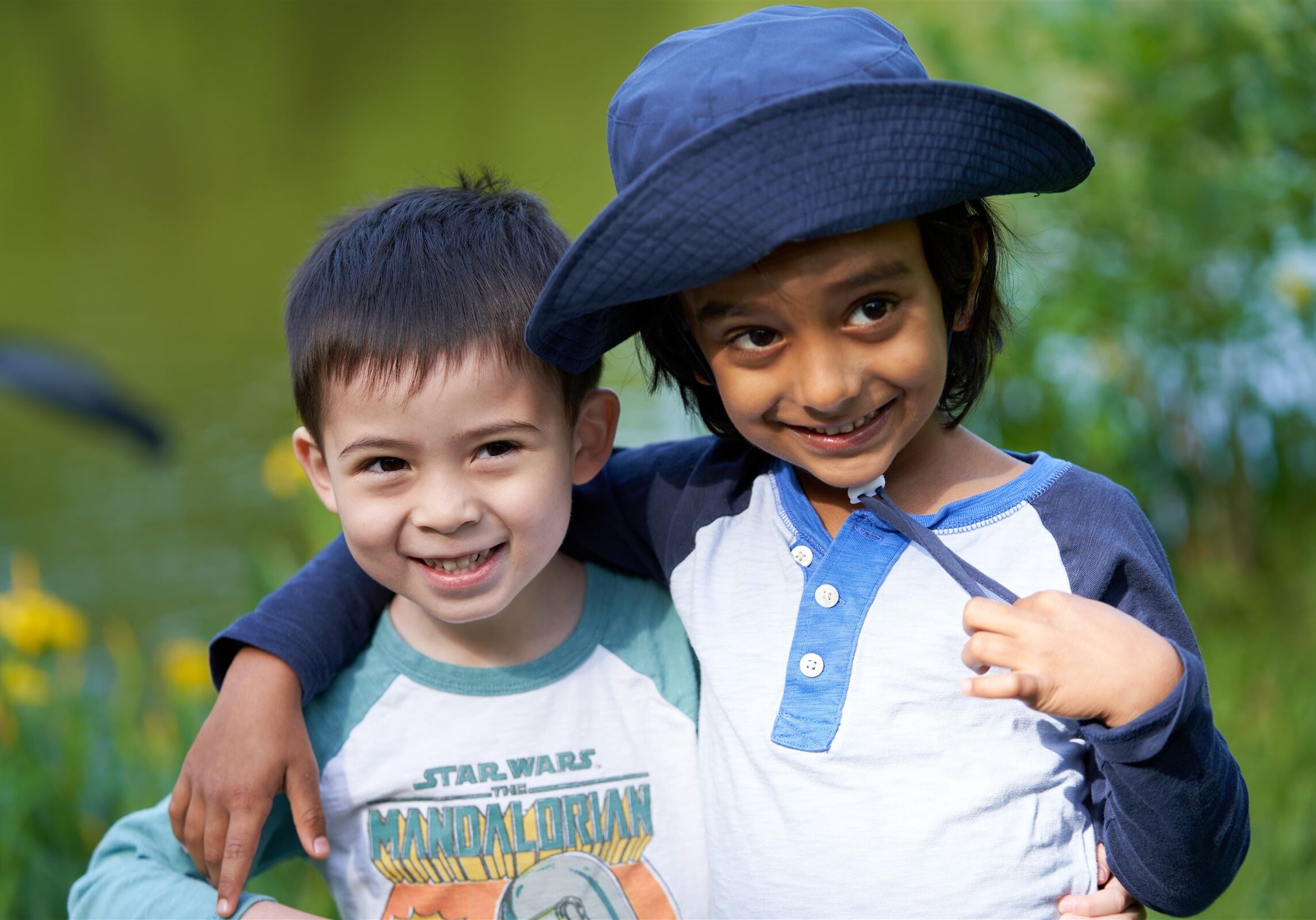Building your Child’s Social-Emotional Muscles
October 7, 2022

Resisting the urge to help.
In their weekly newsletter, Ms. Hesnan and Ms. Blenman shared the following:
When we take a step back from our urge to assist without request and instead allow the child to work their way out of a problem, their development soars! We are building their self-esteem, sense of responsibility, and self-reliance. A professor once told me, “If you wouldn’t say it to an adult, don’t say it to a child,” and that’s how we treat our preschool environment. We will always talk them through problems when asked, but it’s equally important that they know we trust them and their ability to figure it out independently. Also, it’s amazing to see the way they solve problems on their own or build the courage to ask a new friend.
Helping them to name and validating their feelings.
When your child is frustrated, sad, mad, scared, or angry instead of immediately reassuring them or telling them they don’t need to be scared, start with helping them to name their emotion. “Are you scared?” or “I can see you feel angry.” This first step in helping them to regulate their emotions and implement strategies to channel them is awareness of what they are feeling.
This doesn’t mean you can’t draw a line about unacceptable behaviors. “I see you’re angry, but I can’t let you do that.” If your child is scared, “I know you are scared, but you have your stuffy, I’m in the next room, and I know you can also be brave.”
Every child is good.
When your child displays challenging behavior, this is an invitation to get curious. Are they tired? Are they hungry? Are they having a hard time verbalizing their feelings and needs? Are they struggling to connect with others? Are they sick?
We as adults need to do the hard work of modeling the regulation of our own emotions, pull our children a little closer, help them name the emotion, and then provide them a choice of strategies to implement. Here are a few:
• 5 deep belly breaths
• Clenching and unclenching fists
• Getting a drink of water
• Clenching and unclenching fists
• Getting a drink of water
When we give children too much attention for challenging behaviors, the behavior becomes the focus. Rather, we want children to know we love them, believe in them, and are here to support them because we know, that with our help, they can make better choices.
At the Beginning School, we are here to get curious, brainstorm solutions, and partner with you in your child’s social-emotion growth and well-being.
Posted in Social-Emotional